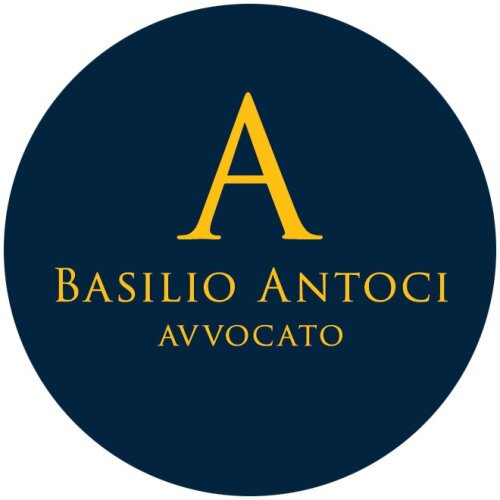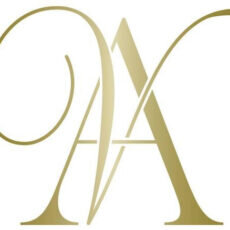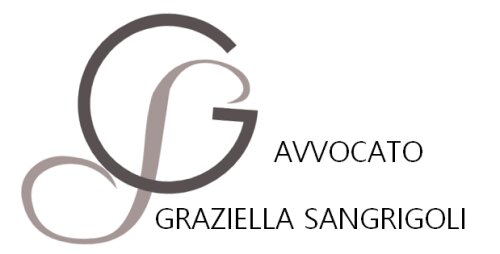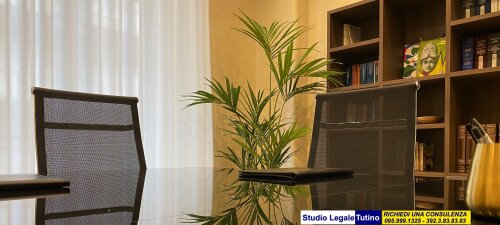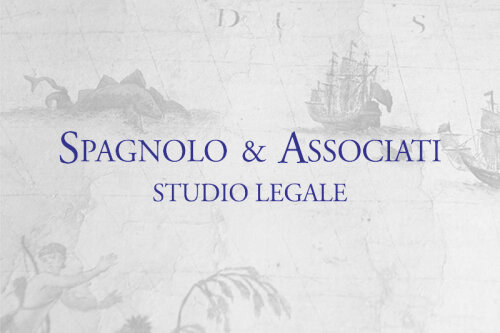Best Lawsuits & Disputes Lawyers in Catania
Share your needs with us, get contacted by law firms.
Free. Takes 2 min.
List of the best lawyers in Catania, Italy
Italy Lawsuits & Disputes Legal Questions answered by Lawyers
Browse our 1 legal question about Lawsuits & Disputes in Italy and read the lawyer answers, or ask your own questions for free.
- informations
- We have a supplier in China from whom we buy a traction coupling spring. The spring is used in lifeline cases, like for the safety of the operators on rooftops. We have been buying this product since 2023. At the start, we sent a sample for our supplier to study... Read more →
-
Lawyer answer by ILF LAW FIRM
Hi,We understand the gravity of the situation you are facing with your supplier in China regarding the defects found in the coupling springs. We can answer your questions and provide some useful information regarding Chinese law and the options available...
Read full answer
About Lawsuits & Disputes Law in Catania, Italy
Catania, a key city in Sicily, operates under the Italian legal system, which is based on civil law. Lawsuits and disputes in Catania typically involve civil, commercial, labor, and administrative matters handled by local courts or tribunals. Legal proceedings are primarily governed by the Italian Code of Civil Procedure (Codice di Procedura Civile), along with local regulations specific to Catania and the Sicilian region. Disputes can arise between private individuals, companies, or even public entities, and may involve issues like breach of contract, property disagreements, family law matters, or recovery of debts. The local judiciary and bar association play pivotal roles in guiding parties through the resolution process, be it through negotiation, mediation, arbitration, or the formal court system.
Why You May Need a Lawyer
Engaging a lawyer in Catania is advisable for anyone facing a legal dispute, no matter its complexity. Common situations where you might require professional legal help include:
- Facing litigation or being sued
- Conflicts over property ownership or inheritances
- Contractual disputes between businesses or individuals
- Employment law conflicts, such as wrongful dismissal
- Debt recovery problems
- Family disputes (separation, divorce, child custody)
- Being named in criminal or administrative proceedings
- Protection of personal assets
- Disputes with public authorities or over licenses
- Seeking advice on negotiating settlements before litigation
Local Laws Overview
Lawsuits and disputes in Catania fall under national Italian legislation but are administered locally. Key aspects of the local legal environment include:
- Court System: Civil disputes are heard in either the Giudice di Pace (Justice of the Peace) for minor claims or the Tribunale (Court) for more substantial matters. Appeals can go to higher courts such as the Corte d’Appello of Catania.
- Mandatory Mediation: Certain disputes (condominium, property, banking, insurance, medical negligence) require an attempt at mediation before proceeding to court.
- Legal Representation: With few exceptions, parties must be represented by a licensed attorney (Avvocato) in legal proceedings.
- Deadlines: Italian law establishes strict statute-of-limitations periods for filing various types of lawsuits. Missing a deadline could mean losing your right to take legal action.
- Costs: Court fees and legal expenses vary depending on the nature and complexity of the dispute. Sometimes, costs may be recovered from the losing party.
- Alternative Dispute Resolution: Mediation and arbitration are increasingly encouraged to reduce court backlogs and offer quicker solutions.
- Enforcement: Enforcement of judgments, such as collection of damages, is handled by bailiffs and can involve additional proceedings.
Frequently Asked Questions
What types of disputes can be resolved in civil courts in Catania?
Civil courts in Catania deal with a wide range of disputes, including contract breaches, property ownership or rental disagreements, debt recovery, family law (divorce, child custody), inheritance issues, and personal injury claims. Commercial disputes between businesses are also commonly handled in these courts.
Do I need a lawyer to file a lawsuit in Catania?
For most cases heard in civil courts (except the smallest claims), you are required to be represented by a licensed Italian lawyer (Avvocato). Lawyers are essential for navigating complex legal procedures and ensuring that your interests are protected.
Is mediation compulsory before starting a lawsuit?
For certain types of disputes-like condominium issues, property, banking, insurance, defamation via the press, and some medical negligence cases-an attempt at mediation is mandatory before filing a claim in court.
How long does a typical lawsuit take in Catania?
The timeline can vary, but due to court backlogs, civil lawsuits in Catania may take several months to several years to reach a final judgment. Appeals and enforcement procedures can extend this timeline further.
What are the court fees and legal costs involved?
Court fees depend on the value and type of the dispute. Legal fees also vary based on the lawyer's experience and the complexity of the case. In many instances, the losing party may be ordered to pay the winner’s legal costs, but the court has discretion in this decision.
Can I appeal a court decision in Catania?
Yes. Most first-instance court decisions can be appealed to the Corte d’Appello in Catania within specific timeframes. There may be further appeals in some circumstances, such as to the Supreme Court (Corte di Cassazione).
How do I enforce a court judgment in Catania?
If the opposing party does not comply with the judgment voluntarily, you can seek enforcement through the court. This may involve seizure of assets, salary garnishments, or other measures executed by a court-appointed bailiff (Ufficiale giudiziario).
Are foreign judgments recognized in Catania?
Generally, Italian law allows for the recognition and enforcement of foreign judgments, particularly within the European Union. The process requires going to the local court and following specific procedures for registration and execution.
What are the risks if I do not respond to a lawsuit?
If you ignore a legal claim, the court may issue a default judgment against you, possibly granting all requests made by the opposing party. It is crucial to respond on time and seek legal advice immediately.
Can disputes be settled out of court?
Absolutely. Settling out of court, through negotiation or alternative dispute resolution methods (e.g., mediation), is common and often encouraged by Italian law. Such settlements can be less costly and time-consuming than court litigation.
Additional Resources
If you need more information or support regarding lawsuits and disputes in Catania, the following resources may be helpful:
- Ordine degli Avvocati di Catania: The local bar association, providing lawyer directories and general legal information.
- Tribunale di Catania: The principal court for civil and commercial matters in the city.
- Giudice di Pace: Handles minor civil claims and small disputes with simplified procedures.
- Sicilian Mediation Centers: Accredited bodies offering court-certified mediation services.
- Comune di Catania Legal Office: Offers general public legal assistance and information about local regulations.
- Consumer Protection Associations: For disputes involving consumers, local chapters of national bodies such as Codacons or Altroconsumo can provide support and guidance.
Next Steps
If you are considering or facing a lawsuit or dispute in Catania, here is a suggested course of action:
- Clearly define your legal issue and gather all relevant documents and evidence.
- Consult a qualified local lawyer specializing in your type of dispute. Use the bar association directory to find reputable professionals.
- Attend an initial legal consultation to understanding your rights, possible outcomes, and the estimated costs involved.
- Explore possibilities for mediation or settlement, especially if the law requires it before going to court.
- If proceeding with litigation, make sure you meet all deadlines and procedural requirements as guided by your lawyer.
- Stay informed and proactive throughout the legal process, maintaining good communication with your attorney.
Lawzana helps you find the best lawyers and law firms in Catania through a curated and pre-screened list of qualified legal professionals. Our platform offers rankings and detailed profiles of attorneys and law firms, allowing you to compare based on practice areas, including Lawsuits & Disputes, experience, and client feedback.
Each profile includes a description of the firm's areas of practice, client reviews, team members and partners, year of establishment, spoken languages, office locations, contact information, social media presence, and any published articles or resources. Most firms on our platform speak English and are experienced in both local and international legal matters.
Get a quote from top-rated law firms in Catania, Italy — quickly, securely, and without unnecessary hassle.
Disclaimer:
The information provided on this page is for general informational purposes only and does not constitute legal advice. While we strive to ensure the accuracy and relevance of the content, legal information may change over time, and interpretations of the law can vary. You should always consult with a qualified legal professional for advice specific to your situation.
We disclaim all liability for actions taken or not taken based on the content of this page. If you believe any information is incorrect or outdated, please contact us, and we will review and update it where appropriate.
Browse lawsuits & disputes law firms by service in Catania, Italy
Catania, Italy Attorneys in related practice areas.



